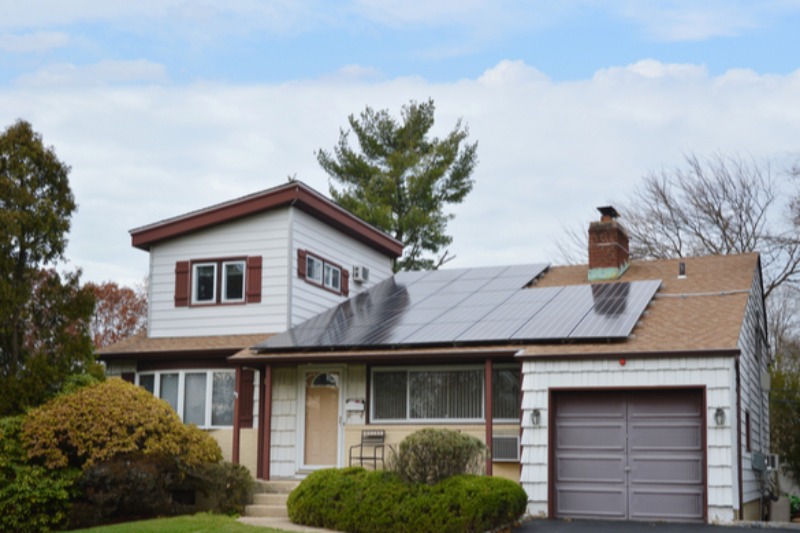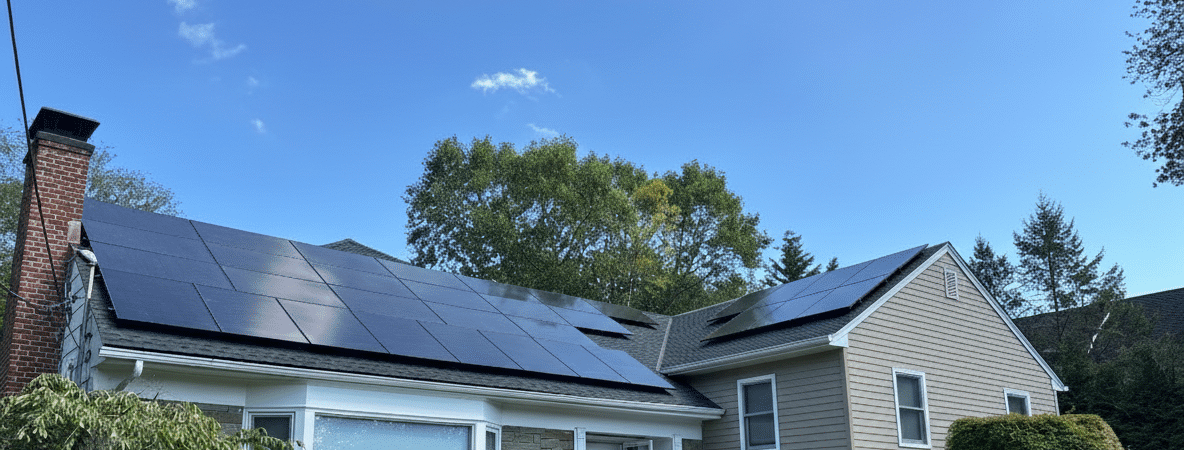Solar installers New Jersey take several steps to shift homes to renewable energy. According to recent data, New Jersey is one of the leading states switching to solar power. In fact, over 550,000 homes across the state are powered by photovoltaic (PV) panels. Increasingly, homeowners are looking to decrease their monthly utility bill and reduce their carbon footprints. As a New Jersey property owner in the market for solar, you need to know how solar contracting companies work to install your rooftop system. This way, you know are properly prepared and know what to expect at every stage of your installation. Read on to learn about how solar installers New Jersey shift homes to renewable energy.
Home Site Evaluation
First, NJ solar contractors conduct a home site evaluation to assess if your home is suitable for solar power. Typically, solar engineers evaluate the angle of your rooftop to determine the best angle and placement for your solar panels. Additionally, they also consider how surrounding trees on your property impact sun exposure. Of course, your solar contractors also evaluate your roof’s structure to ensure it can support the weight of the solar panels. If your home is suitable for a solar installation, contractors will discuss your home’s current energy needs to calculate the best system size. During this meeting, they may give you your solar project cost breakdown New Jersey as well. Definitely, a home site evaluation is crucial to begin your shift to sustainable energy.
Unique Solar Design
Next, NJ solar contracting companies come up with a unique solar design for your rooftop. During this process, they use the information from the site evaluation to determine the optimal panel arrangement. Once your solar professionals have prepared your custom system design, they usually present different solar equipment options. Importantly, there are many different types of equipment to consider. For example, you may choose between string inverters and micro inverters. Notably, sting inverters are the more common and less expensive option. These offer central system monitoring. However, micro inverters allow you to monitor power production at each panel level. With many different equipment options, it’s important to research different brands available for your unique solar design NJ.
Permit Assistance
In addition, New Jersey solar installation companies also assist with permits and documentation. One of the main things you will be applying for are solar incentive programs. New Jersey offers Transition Renewable Energy Certificates (TRECs) to obtain incentive money based on your solar production. With SRECs changing to NJ TRECs, it’s important that your installer is aware of the differences. Furthermore, you will also need to fill out building permits based on your region. Ideally, your installation company should be familiar with the different NJ restrictions and requirements. This way, they can help you figure out which permits and forms you need to fill out. Often, solar providers fill out the forms for you for a smooth renewable energy transition.
Rooftop Solar Installation
Then, NJ solar contractors install your rooftop panel systems. On installation day, your solar installers come out to your home and begin setting up the proper scaffolding. This ensures safety as they’re working on your roof. Next, they install the solar mounting system to position your panels at the best angle to capture the most sunlight. Once the mounting structure is set up, they set the panels in place. Of course, solar professionals also have to set up the inverter and ensure proper wiring as well. Importantly, your installation timeline usually depends on the size of your system. Discuss this with your installer, so you know what to expect. Certainly, rooftop solar installation is one of the most important steps to transition to sustainable electricity.
Net Metering
Furthermore, New Jersey solar companies can also install a net meter into your residential system. This is a great way for property owners to maximize their energy investment with energy credits. A net metering system sends your excess electricity to the grid in exchange. Then, when your system is under producing, you can utilize your energy credits to offset the cost of grid energy. To meet the eligibility requirements for NJ net metering, your generating capacity cannot exceed your annual electric needs. In this way, proper system size for your energy capacity is essential for an optimal solar installation Bergen County or other areas. Importantly, a net metering system is a great way to lower your electric costs as you shift your NJ home to renewable energy.
Solar installers New Jersey take several steps to shift homes to renewable energy. First, NJ solar contractors conduct a home site evaluation to determine if your roof is suitable for a panel system. Next, your solar engineers come up with a unique system design for your home. In addition, NJ professionals assist you with permits and documentation. Moreover, they install your system carefully to ensure it’s reliable. Finally, your company can install a net metering system to maximize your investment. Consider these points to learn how solar installers New Jersey shift homes to renewable energy.












